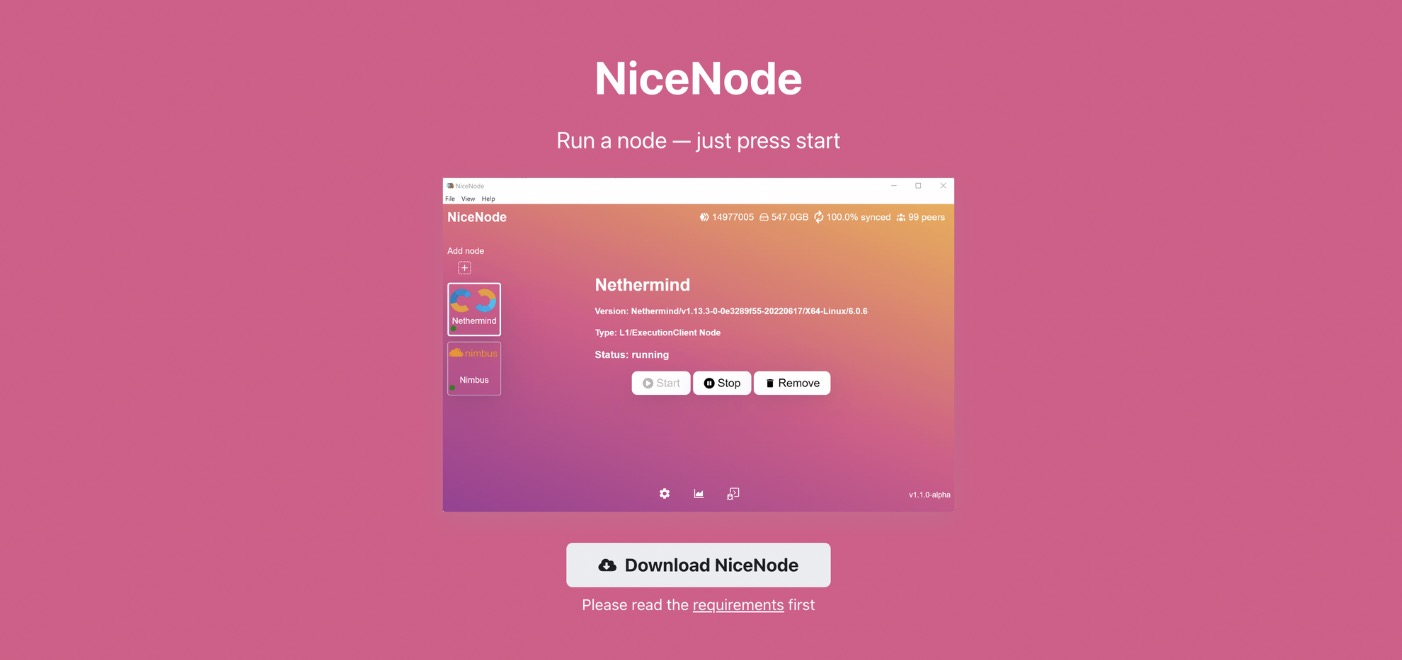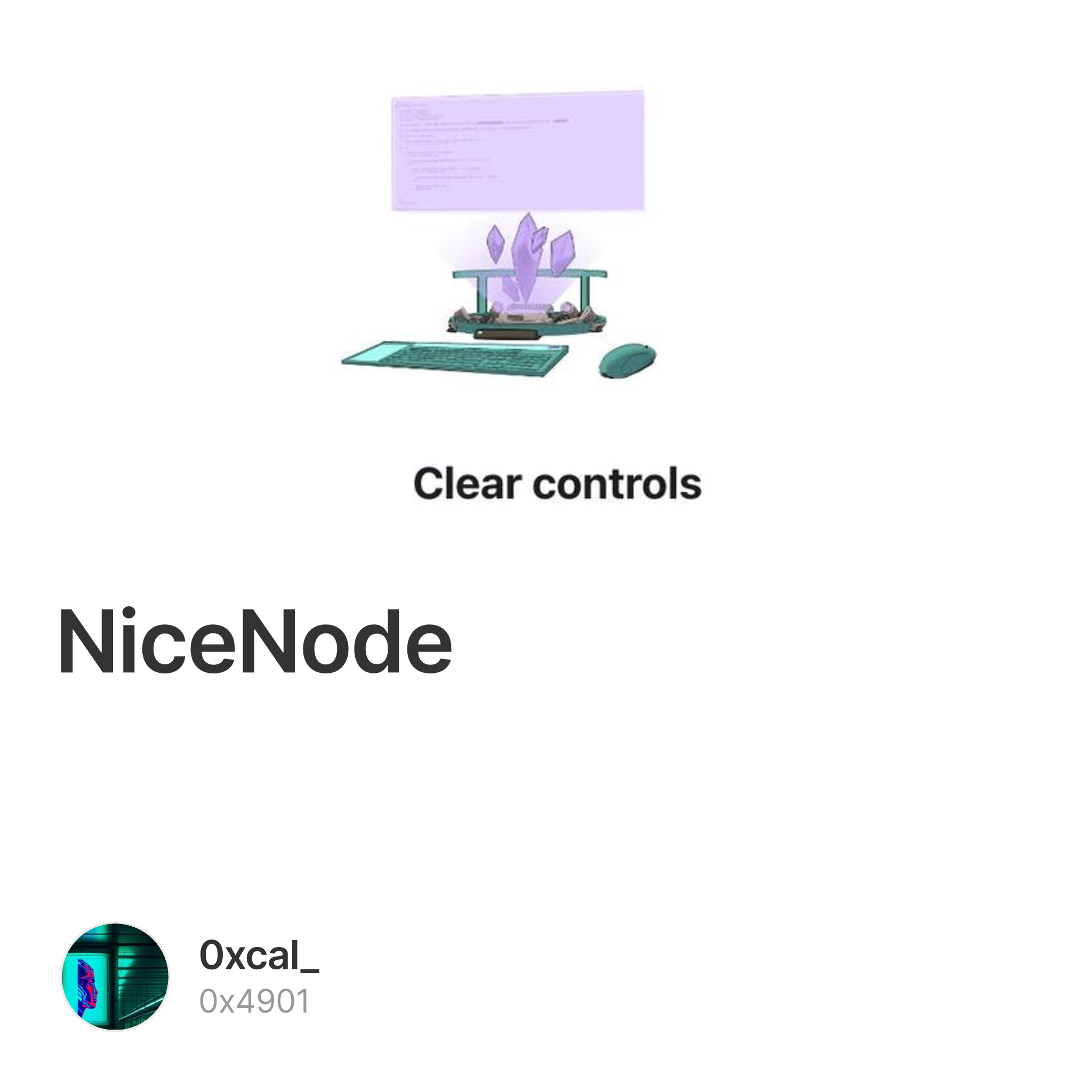A cool project I found over the weekend is NiceNode. For non-technical users of ethereum the possibility of running a node and contributing to the health of the network presents a challenge. Nicenode, with its slick UX and simplification of the process, gives many more the confidence to engage deeper in the ethereum ecosystem.
There is support for full and light nodes on Nicenode, with archive, layer 2 and testnet node operability in development. You don’t need 32 ETH to run a node, though make sure to check the hardware requirements (for beginners, light nodes and testnets demand less). If set, running a node on Nicenode is very simple and only a few clicks away. Download its software, and follow the three steps to connect up your Metamask. Below are a few reasons to run your own node on ethereum!

Decentralisation
There is no direct financial gain from running your own node, but it is more than just altruistic as I have read written elsewhere. Running a node means you directly contribute to the resilience of the network, increasing the peer-to-peer network by one. Running a minority clients is even better, reducing the vulnerability of the network in case of bugs in the code of of larger clients. Diversity in the network along many different axis’ only strengthens ethereum, aiding decentralisation which is the key differentiator between blockchains and legacy centralised databases.
Privacy
Blockchains emerging out of a cypherpunk philosophy, Ethereum retains privacy as a core value. Individuals should be able to effectively organise their own politics, and privacy is vital to such organisation. Despite this vision, there are many points of failure across the web3 stack right now. On chain privacy can fail if you transact between your accounts, whilst metadata can be gleaned to act as a digital fingerprint and link accounts.
No less, the node you connect to the Ethereum blockchain inhibits privacy. Every time you use Metamask your IP address and the addresses you own can be seen by its node-as-a-service provider, Infura (owned by the centralised Consensys). Interacting directly with the blockchain through your own node is one small step towards Ethereum’s vision.
Censorship Resistance
Running your own node increases your ability to resist censorship. The third party node-as-a-service could blacklist IP addresses and refuse their associated transactions, removing your ability to access the blockchain. Your own node removes this risk.
Summary
Highly organic with real utility, Nicenode is a refreshing project in the current crypto climate. Aided with a $30k grant from Citydao and Gitcoin, Nicenode is building out an inclusiveness within the Ethereum community. It is often said in crypto of the power blockchains present in enabling decentralisation. Yet, decentralisation begins with the individual actions of the ecosystems users. Nicenode encapsulates this wonderfully and simply.

